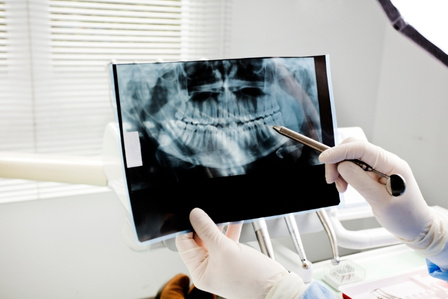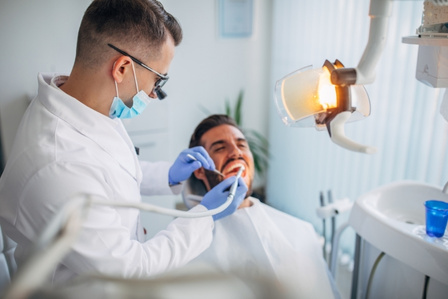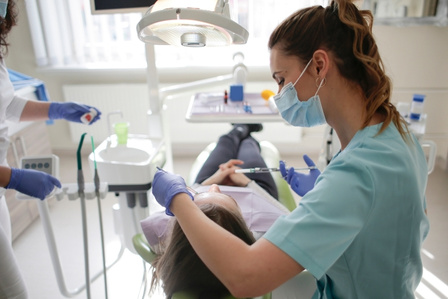
A routine dental exam is more than just a quick check-up—it’s a crucial step toward maintaining both oral and overall health. Many people delay dental visits, assuming minor issues will be resolved on their own. However, neglecting routine exams can lead to hidden problems that affect more than just your teeth.
Your mouth is a gateway to your body, and the health of your teeth and gums can influence conditions like heart disease, diabetes, and even mental well-being. Regular dental check-ups not only prevent painful and costly dental issues but also contribute to a healthier, more confident life. Understanding the connection between oral health and overall wellness makes it clear why routine exams should never be overlooked.
The Role of Routine Dental Exams in Preventing Oral Health Issues
Routine dental exams are essential for keeping your teeth and gums in top condition. Many dental problems start small and progress silently, making early detection critical.
- Detect cavities before they cause pain – Small cavities can be treated easily. But if left untreated, they can lead to infections or tooth loss.
- Prevent gum disease – Regular cleanings remove plaque buildup, preventing inflammation and reducing the risk of gum disease.
- Identify early signs of oral infections – Dental infections can spread quickly if not addressed. This can lead to severe pain and health complications.
- Maintain strong enamel – Dentists provide fluoride treatments and other preventive care to protect teeth from erosion and decay.
Skipping dental exams often means small issues go unnoticed until they require extensive treatment. A simple check-up can save you from unnecessary discomfort and expensive procedures in the future.
The Link Between Oral Health and Systemic Health
Many people don’t realize that poor oral health can affect the entire body. Research continues to highlight strong connections between oral bacteria and serious health conditions.
How does oral health influence overall well-being?
- Heart disease – Bacteria from gum infections can enter the bloodstream, increasing the risk of heart inflammation, high blood pressure, and strokes.
- Diabetes complications – Uncontrolled gum disease can make it harder to regulate blood sugar levels, worsening diabetes symptoms.
- Respiratory problems – Oral bacteria can be inhaled into the lungs, contributing to infections and conditions like pneumonia.
- Pregnancy risks – Poor oral health has been linked to preterm birth and low birth weight in babies.
By attending routine dental exams in Hutchinson, KS, you’re not just protecting your teeth—you’re taking a proactive step toward reducing your risk of serious health issues.
How Routine Exams Help Detect Non-Dental Health Concerns?
Dentists don’t just look at your teeth; they examine your mouth, gums, tongue, and jaw for signs of other health conditions. Many systemic diseases show early symptoms in the mouth before they become noticeable elsewhere in the body.
Conditions dentists can detect:
- Oral cancer – Unusual lumps, sores, or discoloration in the mouth can be early warning signs of oral cancer.
- Diabetes – Symptoms like dry mouth, gum infections, and slow-healing sores can indicate diabetes.
- Osteoporosis – Bone loss in the jaw can be an early indicator of osteoporosis, a condition that weakens bones throughout the body.
- Vitamin deficiencies – Pale gums, tongue inflammation, and frequent mouth sores can signal nutritional deficiencies.
The Impact of Oral Health on Mental and Social Well-Being
Oral health doesn’t just affect physical wellness—it plays a major role in mental and social confidence. A bright, healthy smile can positively impact self-esteem and overall quality of life.
Why does dental health affect confidence?
- Missing or damaged teeth can make people self-conscious about their appearance.
- Chronic bad breath (halitosis) can cause anxiety in social situations.
- Discomfort from dental issues can lead to stress, affecting daily activities and productivity.
People who prioritize dental health often feel more confident in their personal and professional lives. A healthy smile encourages positive interactions and a greater sense of well-being.
Making Dental Exams a Priority in Your Routine
Staying on top of routine dental visits doesn’t have to be difficult. A few simple steps can make dental care a seamless part of your lifestyle.
How do you make dental exams a habit?
- Schedule in advance – Book your next appointment before leaving your dentist’s office.
- Set reminders – Use phone alerts or calendar apps to stay on track.
- Make it a family priority – Encourage kids and family members to join you in maintaining regular check-ups.
- Find a comfortable dental office – Choose a provider who makes you feel at ease during visits.
Routine dental exams are essential for more than just a bright smile—they are crucial to overall health. From preventing cavities and gum disease to detecting serious health conditions early, regular check-ups are a simple yet powerful way to maintain well-being. A healthy mouth supports a healthy body, reducing the risk of systemic diseases and boosting confidence. Prioritizing dental exams is an investment in both long-term health and quality of life. Don’t wait for symptoms to appear—take control of your health by scheduling your next dental visit today.



